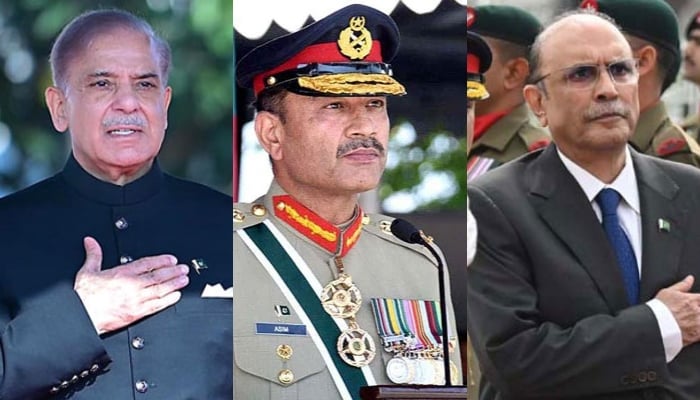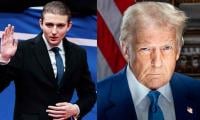Comment: Pakistan’s new ruling troika
The country last saw troika rule in 90s when the President had the power to remove the government and dissolve the National Assembly
ISLAMABAD: After many years, Pakistan is now again under the rule of a troika - President Asif Ali Zardari, Prime Minister Shehbaz Sharif and Army Chief General Asim Munir.
The country last saw troika rule in 90s when the President had the power to remove the government and dissolve the National Assembly. Such presidential powers were taken away through a constitutional amendment in late 90s, which had turned the president merely into a figurehead.
Constitutionally and legally the prime minister though became powerful, the traditional influence of Army Chief remained unaffected as has been witnessed after the end of last military rule. For some time, the office of the Chief Justice of Pakistan also emerged as a third member of the troika. However, in the post Feb 8 elections the split mandate, the strategically important number of National Assembly seats won by the Pakistan People’s Party and election of Asif Ali Zardari as the head of the state have once again made the incumbent president member of the ruling troika.
President Zardari has no constitutional and legal powers to repeat what has been happening three-four decades back but because of PPP’s number in the National Assembly the Presidency became really relevant to give strength or jolt the Shehbaz Sharif-led government.
At present, the ruling troika appears to be on the same page and resolves to work together to bring the country out of its present economic challenges. In the economic front, the lead role is being played by the all-powerful Special Investment Finance Council (SIFC) - which was the brainchild of incumbent Prime Minister Shehbaz Sharif and Army Chief General Asim Munir.
Set-up during the last PDM government, the President Asif Ali Zardari fully supports the Shehbaz government and has shown his determination to support SIFC to meet the economic challenges of Pakistan.
In his speech on the occasion of 23rd March parade in Islamabad, the President said a democratic government was in place, following the electoral exercise and the responsibility now “rests with all of us to collectively address the challenges ahead. Our people are hardworking and intelligent. The youth, equipped with immense capabilities, are the trustees of the country’s development.”
The president said the Special Investment Facilitation Council (SIFC) had been established to improve the economy and expressed his confidence that under that platform, foreign investment would develop agriculture, livestock, mineral and mining, information technology and energy sectors. He called upon all political parties to rise above their political interests and work collectively for the country’s security and prosperity. Understanding and working relationship between Shehbaz Sharif and General Asim Munir have been remarkable during the PDM government. After the Feb 8 elections, Army Chief-led corps commanders conference reiterated to continue providing full support to the government in combating security threats and uplifting the socioeconomic growth in the country including wholehearted assistance in curbing all illegal activities including smuggling, hoarding, electricity theft, implementation of One Document Regime and respectable and safe repatriation of all illegal foreigners.
Prime Minister Shehbaz Sharif also leaves no opportunity to praise the Army Chief for his contribution towards the setting up of SIFC and to help the government meet economic challenges. Presently all the three players of the troika appear to be focused on delivering what the nation expects from them. Some people do say that the PPP, which is part of the treasury benches but has not joined the cabinet, is a weaker link and it may leave the government side in a few months. However, others insist that Zardari will not do it while the military establishment will also try to keep all together to get the country out of its present economic quagmire.
-
 Jelly Roll Finally Shares Painful 'secret' Following 2026 Grammy Win: 'Wanted To Scream'
Jelly Roll Finally Shares Painful 'secret' Following 2026 Grammy Win: 'Wanted To Scream' -
 Noah Wyle Gives Exciting Update About 'The Pitt' Season 3
Noah Wyle Gives Exciting Update About 'The Pitt' Season 3 -
 Who Is Behind Princess Eugenie, Beatrice's Ban From Royal Ascot Amid Sarah, Andrew Scandal?
Who Is Behind Princess Eugenie, Beatrice's Ban From Royal Ascot Amid Sarah, Andrew Scandal? -
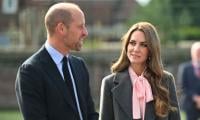 Kate Middleton Sunbathing Photos: New Book Sheds Light On Prince William's Reaction
Kate Middleton Sunbathing Photos: New Book Sheds Light On Prince William's Reaction -
 Jim Curtis Shares Rare Details How His Relationship With Jennifer Aniston Started
Jim Curtis Shares Rare Details How His Relationship With Jennifer Aniston Started -
 Who Organized 'The Office' Reunion At Actors Awards 2026? Revealed
Who Organized 'The Office' Reunion At Actors Awards 2026? Revealed -
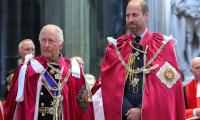 King Charles Set To Abdicate Next Year, 'official Reason' Revealed
King Charles Set To Abdicate Next Year, 'official Reason' Revealed -
 Paris Hilton's Power Move To Make 'neurodiversity Relatable'
Paris Hilton's Power Move To Make 'neurodiversity Relatable' -
 Michelle Williams Remembers 'friend' James Van Der Beek After His Death
Michelle Williams Remembers 'friend' James Van Der Beek After His Death -
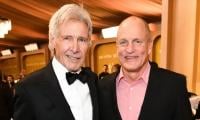 Woody Harrelson Unveils The Favour ‘living Legend’ Harrison Ford Asked For Before Actor Awards
Woody Harrelson Unveils The Favour ‘living Legend’ Harrison Ford Asked For Before Actor Awards -
 How Long Have Zendaya And Tom Holland Been Dating?
How Long Have Zendaya And Tom Holland Been Dating? -
 Real Reason Why 'Only Murders In The Building' Cast Didn't Attend 2026 Actor Awards
Real Reason Why 'Only Murders In The Building' Cast Didn't Attend 2026 Actor Awards -
 Prince William Makes Big Decision After Princess Eugenie, Beatrice Ban
Prince William Makes Big Decision After Princess Eugenie, Beatrice Ban -
 GLP-1 Drugs Linked To Osteoporosis And Gout: New Study Reveals Higher Risks
GLP-1 Drugs Linked To Osteoporosis And Gout: New Study Reveals Higher Risks -
 Seth Rogen Unveils Catherine O’Hara's Distinguished Quality In Emotional Tribute
Seth Rogen Unveils Catherine O’Hara's Distinguished Quality In Emotional Tribute -
 MWC 2026: New Smartphones, AI Gadgets And Tech Innovations Revealed
MWC 2026: New Smartphones, AI Gadgets And Tech Innovations Revealed
